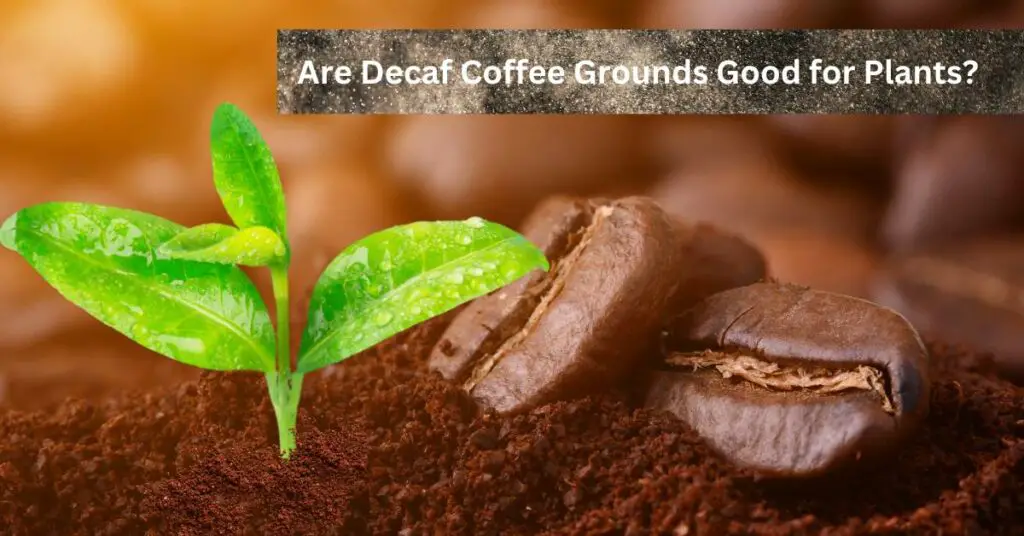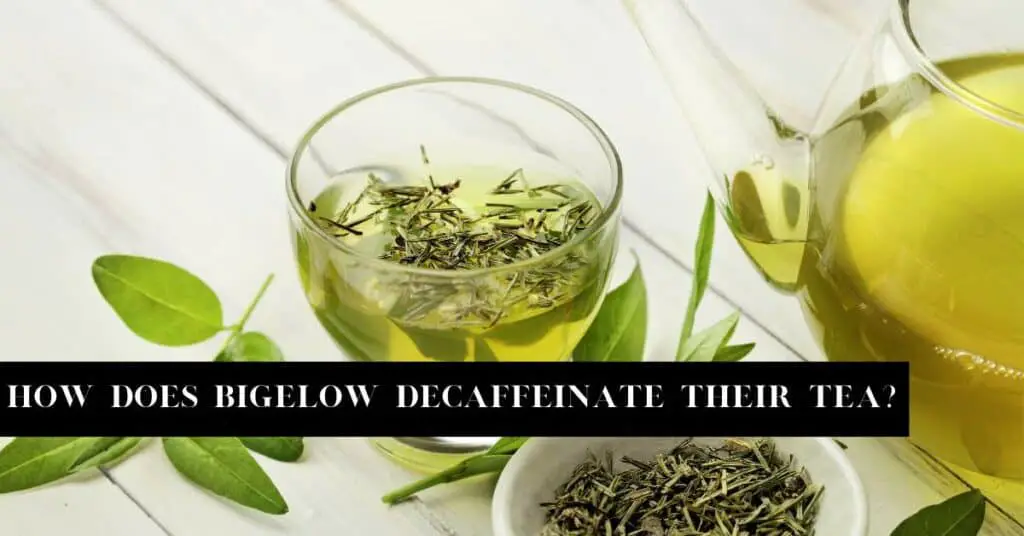Gardening is an exciting and satisfying hobby that helps lower stress levels. On the other hand, it also requires regular maintenance as the plants can be affected by tick and insect bites.
Besides water, sunlight, air, etc., fertilizer is also necessary for promoting plant growth. The two main types of fertilizers are organic and inorganic. This blog will discuss whether decaf coffee grounds can be used as organic plant fertilizer.
Using decaf coffee grounds as fertilizer is a continuing debate. One group emphasizes the benefits of using this natural fertilizer. In contrast, another group does not recommend using decaf coffee grounds for plants.
Using decaf coffee grounds in small amounts can promote plant growth. This fertilizer is best for acid-loving plants like blueberries and azaleas. Adding decaffeinated coffee grounds to the soil will encourage plant growth and control pests.
Read the article briefly to learn about adding decaf coffee grounds to plants.
Using Decaf Coffee Grounds as Fertilizer
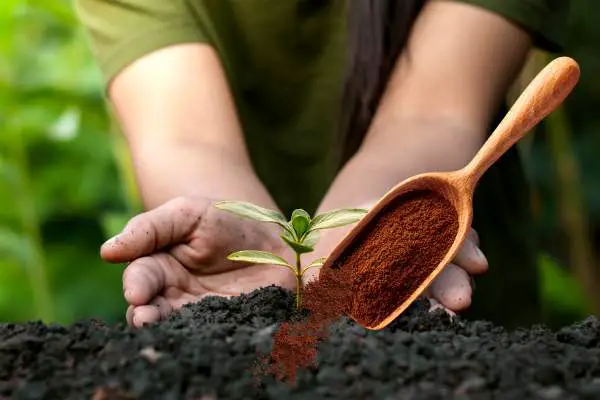
Decaf coffee grounds can be used as fertilizer for plants. Still, it is vital to know that this fertilizer is unsuitable for all plants.
You can use this fertilizer to improve the soil’s quality, as decaf coffee grounds are rich in nitrogen. Following are different ways to fertilize the soil using decaf coffee grounds.
- Add freshly ground decaf grounds to the soil. You may also use brewed coffee grounds.
- Brew one cup of decaf coffee by adding two cups of water. Then allow it to soak for around 24 hours. Now you can strain and use the nutrient-filled water on the plant’s soil.
- You can also mix decaffeinated coffee grounds with other organic fertilizers and add them to the soil.
Note: Use decaf coffee grounds in a moderate amount. You can use a half-and-half mix of coffee grounds and water per square foot.
Why Use Decaf Coffee Grounds as Fertilizer Instead of Regular Coffee Grounds?
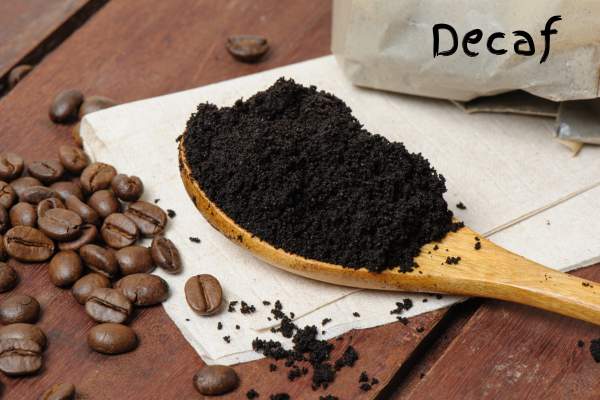
Some resources recommend using decaf coffee grounds instead of regular coffee grounds for your plants. Both traditional and decaf coffee grounds work almost similarly when used as a fertilizer.
You know that regular coffee contains more caffeine, and this stimulant promotes photosynthesis in plants and acts as an insect repellent.
On the flip side, caffeine may also negatively affect plant growth. Therefore, decaf coffee grounds are the best, as decaffeination will remove around 97% of the caffeine.
Necessary: Both decaf and regular coffee grounds will make them acidic, so it is best to add them in moderation.
Which Plants Grow Well After Applying Decaf Coffee Grounds?
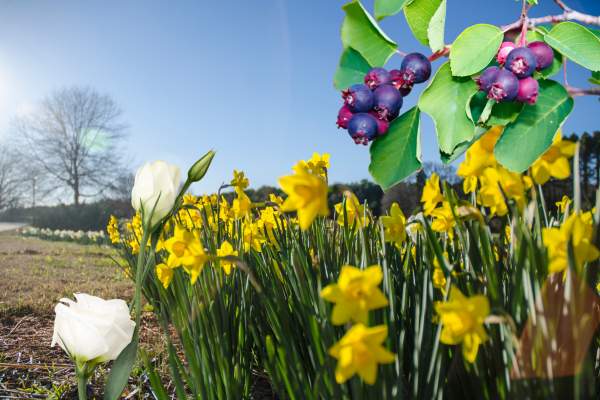
As already mentioned, not all plants will love decaf coffee grounds. Since these decaffeinated coffee grounds will increase the soil’s acidity, it is best to use them on acid-loving plants.
A few acid-loving plants that will grow more when you add decaf coffee grounds to the soil are given below.
- Gardenias
- Aloe
- Roses
- Ferns
- Blueberries
- Azaleas
- Rhododrens
- Camelias
- Daffodils
In contrast, some plants will not enjoy highly acidic soil. So adding decaf coffee grounds to such plans will not show positive responses.
Although most plants benefit from fertilizing the soil with decaf coffee grounds, the following plants are exceptions:
- Marjoram
- Honeysuckle
- Spindle
- Phacelia
Suppose you are still determining whether decaf coffee grounds will suit the plant in your garden. In that case, it is best to talk to a gardening expert. He would check on the plant varieties and suggest suitable fertilizers.
Benefits of Decaf Coffee Grounds for Gardening
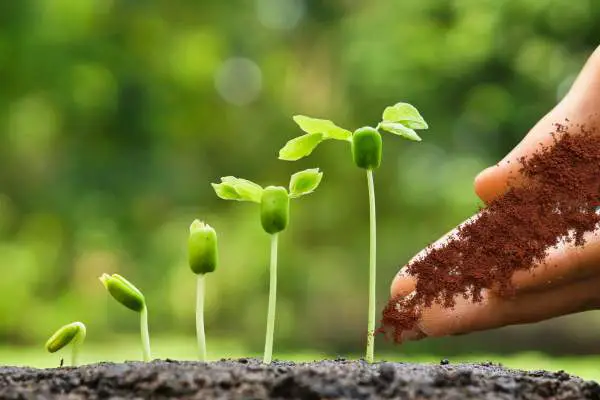
Decaf coffee grounds work well as a fertilizer and provide many other benefits. If you are a coffee lover, you know how the morning cup of joe boosts your energy level.
Similarly, decaffeinated coffee grounds improve plant growth. Since decaf coffee grounds contain much less caffeine, so they are a safer option than regular coffee grounds. The potassium and magnesium in these coffee grounds will promote metabolic processes and photosynthesis.
The nitrogen content in this fertilizer increases plant maturation. Decaf coffee grounds also increase the quality of soil and improve drainage. Further, this fertilizer will increase beneficial microbes and act as a pest repellent.
Side Effects of Using Decaf Coffee Grounds on Plants
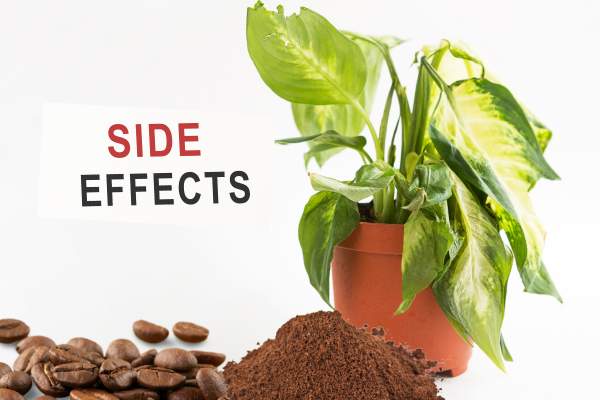
While many plants get benefits from adding decaf coffee grounds to the soil, on the other hand, there are some possible side effects due to this fertilizer.
Excessive use of decaf coffee grounds on soil can make it highly acidic and harm the plants.
Hence, it is vital to know how much fertilizer to apply. Since this fertilizer works well with acid-loving plants, you cannot use it for all plants.
Although coffee grounds will not kill plants, they may cause harm to plants that do not like acidic soil. If you have pets at home, keeping them away from these decaf coffee grounds is best.
The small amount of caffeine in decaffeinated coffee grounds may cause adverse effects on your furry friends.
Final Words
Decaf coffee grounds are the best fertilizer for acid-loving plants. These coffee grounds will make the soil acidic and provide many benefits for promoting plant growth.
However, not all plants benefit from decaf coffee grounds, so it is best to discuss with a gardening expert whether they will suit your plants.
Most plants show positive growth responses when applying decaf ground to the soils. Therefore, this is an excellent organic fertilizer that is affordable and eco-friendly.
FAQs
Can I Apply Decaf Coffee Grounds to Succulents?
Since decaf coffee grounds retain too much moisture, this can rot the succulent roots.
Hence, avoid adding decaf or regular coffee grounds to succulents and cacti plants.
Can I Use Decaf Coffe Grounds On Indoor Plants?
Yes, you can use decaf coffee grounds on your indoor plants, but ensure to use them in moderation.
Can I Use Decaf Coffee Ground on Tomato Plants?
No, tomato plants like alkaline soil since decaf coffee grounds make the soil acidic. They will not be suitable for decaf coffee grounds.
Can I Use Decaf Coffee Grounds in My Garden?
Yes, you can use decaf coffee grounds as fertilizer.
These nitrogen-rich coffee grounds will improve soil quality, promoting plant growth. However, it is best to use acid-loving plants like daffodils and blueberries.
Should I Apply Coffee Ground Directly to the Soil?
Yes, you can apply coffee grounds directly to the top layer of the soil, but this may take time to produce results.
So, it is best to brew it and pour the water into the plant soil.

